Audio Version Of The Blog – 4/14/21
Listen to an Audio Version of the Blog
Download:MP3 Audio

Listen to an Audio Version of the Blog
Download:MP3 Audio
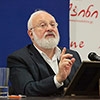 Question: Why is the sea that the children of Israel cross called the Final Sea (Yam Suf)? What does water represent?
Question: Why is the sea that the children of Israel cross called the Final Sea (Yam Suf)? What does water represent?
Answer: Water represents life. This is the quality of Bina, the quality of bestowal and love. A person is born in water, everything emerges in water, this is the basis of life.
However, there are good waters and evil waters. When the water is not free from egoism, it is evil water, evil waves—for example, the Dead Sea or the sea that swallows those who enter it.
The sea that the children of Israel cross is called the Final Sea because there they completely leave egoism and cross the border between the quality of reception and the quality of bestowal.
Question: Is this boundary symbolized by the Machsom, the nominal barrier between egoism and altruism?
Answer: Yes, this is absolutely correct.
[280732]
From KabTV’s “Spiritual States” 4/2/21
Related Material:
For Waters Of The Sea To Part…
Water And Crocodile: Mercy And Wisdom
Malchut And Bina, Salt Water And Fresh Water
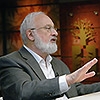 Our path becomes more and more precise every day, the direction is clearer and the desired and actual states are more defined. I measure my progress by how much strength I receive from the group, how much longing I have to reveal the Creator, and how much of this desire I can give the group. These two forces are keeping me accurately on the path to my goal.
Our path becomes more and more precise every day, the direction is clearer and the desired and actual states are more defined. I measure my progress by how much strength I receive from the group, how much longing I have to reveal the Creator, and how much of this desire I can give the group. These two forces are keeping me accurately on the path to my goal.
The main thing is to keep raising the importance of the goal, which constantly disappears. Because of this fact, we will move forward all the time. It is impossible to proceed without negative forces because the advantage of the light is revealed from darkness.
And therefore, if the importance of the goal suddenly disappears and gives way to the feeling of gloom and darkness, this is so that we feel this state as “evening,” after which “morning” can come. It turns out that we awaken the dawn and the dawn does not awaken us.
Pay attention to what a huge influence the environment has on our life: newspapers, television, public opinion, news. We feed on these sources. If it were not for all this external information, we would live like animals; everyone would bury themselves in their hole and not be interested in what is happening outside.
I would not know what is happening in the world, what everyone thinks about, and what they want. But since I feed on information from the whole vast world, it shapes me.
Given this feature, if we want to advance correctly, we need to rise above this world in order to be above it. Therefore, in the group, one should mainly talk about the greatness of the Creator so that it is above everything else, so that it sounds in every word and sentence.
You need to make the ten more important than the whole world so that it pulls you up and not on the corporeal level like the whole world pulls you toward its insignificant values. I must feel how a higher force is acting inside the ten. Therefore, we should talk about the greatness of the Creator because before the great, it is easy to nullify ourselves.
The striving for self-nullification brings us to faith above reason. The power of the Creator, called the power of faith, becomes higher than the power of reason, that is, egoistic reception. And having nullified myself in front of the group that inspires me with the greatness of the Creator, it will be easy for me to nullify myself before the Creator and direct all my efforts to Him.
In return, I will receive the power of faith, bestowal, from the Creator and then I will feel that all reality, except for my little egoistic world, lives according to the law of bestowal, and the Creator fills the entire universe.
[280696]
From the Daily Kabbalah Lesson 4/6/21, “Raising the Importance of the Goal”
Related Material:
The Greatness Of The Creator In The Ten
What Is Greatness Of The Creator?
The Lord On High Is Mighty
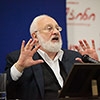 Question: Once the sons of Israel received Pharaoh’s permission to leave Egypt, they left it in a hurry. Pharaoh, however, began to regret that he had let the people go and sent his army in pursuit of them.
Question: Once the sons of Israel received Pharaoh’s permission to leave Egypt, they left it in a hurry. Pharaoh, however, began to regret that he had let the people go and sent his army in pursuit of them.
What does it mean in the inner work of a person that Pharaoh regretted it, and why?
Answer: The fact is that a person running away from his egoism must exit it once and for all. The feeling of the boundary that one crosses is the state of the passage through the Red Sea.
The sons of Israel feel at this moment the strongest upsurge of egoism, which is forcing them to turn back and return to Egypt, to egoistic slavery, and, as before, to succumb to their ego.
They do not know what to do. On one hand, they are eager to go there, on the other hand, they are eager to stay here. In this state, they stand in front of the what is called the raging sea because all this happens inside a person.
Question: Inside one person or inside a group of people?
Answer: Inside each person in the group of people trying to rise above their egoism in order to connect and in the connection with each other to cross the egoistic barrier.
Question: Thus, as the Torah tells us allegorically, in front of them is the sea, behind them the chariot of Pharaoh, and the Creator says to Moses, “Lift up your staff.” Moses raises the staff, the sea parts, the waters divide in two. What does this mean?
Answer: This is the same technique as when a person advances with the help of a staff.
The staff means to go by faith above reason. The staff in Hebrew is “Mate” (lower), meaning lower than your opinion, your reason, your egoism. You have to lower your egoism so much that you ignore what it tells you and go above it. This technique helps a person pass through the Red Sea.
As soon as the sons of Israel crossed to the other side, the sea returned to its normal state and swallowed all the Egyptians. This means that this condition kills those who do not want to move by faith above reason in the quality of bestowal, connection, above their egoism. That is, you will have no spiritual attainment, no crossing the Red Sea. You will not be able to cross it and find an external quality that is higher than your egoism. Therefore, all our egoistic desires are drowned in the sea.
The parting of the sea symbolizes the separation between egoistic and altruistic desires. Part of them, the altruistic desires, come out of the sea, and another part, the “Egyptians,” perish.
[280689]
From KabTV’s “Spiritual States” 4/2/21
Related Material:
The Parting Of The Red Sea
Crossing Of The Red Sea (Yam Suf), Part 1
The Leap Into The “Red Sea”
My new article on Linkedin “How to End Covid-19”
Every country in the world is grappling by itself with the woes of Covid-19. Germany is on its way to yet another lockdown; France is already under lockdown; India breaks records in new confirmed cases, and Brazil breaks records in Covid deaths. There was a time when we felt that the pandemic is everyone’s problem, and then presidential candidate Joe Biden said “An infection anywhere is an infection everywhere.” Now, each country is fighting the bug on its own. The UN Director General complained about inequality in administering the vaccines, and while some countries have vaccinated half of their population, others have not received a single dose of any of the vaccines.
Currently, each country thinks of its own interest and behaves as selfishly as we always have. At the same time, the global nature of Covid-19 requires that we start thinking globally about our health rather than locally, since every country affects every other country. Also, financial ability to afford the vaccines should not be a consideration in administering it.
If we continue this behavior, there will be no end to this pandemic. Variants will keep emerging and the spreading will continue. If we want to resolve this crisis, we must return to the perception of the pandemic as a global problem and treat it as such. There needs to be a global vaccine bank, and we must produce enough vaccines for all of humanity. Afterwards, we must prioritize who should get it first: by age, by country, etc. It needs to be as impartial as possible.
Currently, each country thinks of its own interest and behaves as selfishly as we always have. At the same time, the global nature of Covid-19 requires that we start thinking globally about our health rather than locally, since every country affects every other country. Also, financial ability to afford the vaccines should not be a consideration in administering it.
To put it simply, we must treat humanity the way we would treat our own family. If we do this, we will at least try to send the vaccines where they are most required, and that way we will all recover from the pandemic much faster. We must keep in mind that until we all recover from it, no one is safe. In a way, the plague is a lesson in consideration that nature is giving us. So far, we have been poor students.
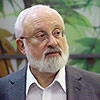 Question: A person in Egyptian slavery initially enjoys being in it. We agree to work for Pharaoh (egoism) and we like working for him. This period is called seven years of satiation. Then, at some point, Pharaoh changes. What happens?
Question: A person in Egyptian slavery initially enjoys being in it. We agree to work for Pharaoh (egoism) and we like working for him. This period is called seven years of satiation. Then, at some point, Pharaoh changes. What happens?
Answer: When Pharaoh changes, although we still exist in the same egoism, we realize that Pharaoh does not treat us kindly and does not wish us well. It turns out that we worked for him all the time not for ourselves, and nothing good remains for us from this.
Question: In the Torah, this work is called Avodat Perech (hard work). What does it mean?
Answer: There are many explanations for this concept. In particular, we never receive any fulfillment from this work. We never achieve something that would be worth so much effort.
Question: This is how your teacher Rabash explains this: “That is, the body agrees more to do the holy work with the intention to receive, and there is no need…. to aim to bestow.” Does it mean go, work for Pharaoh, and then everything will be fine?
Answer: Yes, but as time passes, it is no longer possible to continue working for him because you see how Pharaoh himself reveals to you that being in this slavery is pointless. You receive nothing from it. Therefore, a person has no strength to continue working for the Pharaoh.
[280311]
From KabTV’s “Spiritual States” 3/26/21
Related Material:
Humanity In Egyptian Slavery
Egoism Poisons Our Lives
Concentration Of Evil
My new article on Linkedin “What We Should Remember on Israel’s Memorial Day”
This evening begins Israel’s Memorial Day for the Fallen Soldiers of the Wars of Israel and Victims of Actions of Terrorism. Our nation is unique. Alongside the grieving for the fallen and the victims, we must bear in mind that the State of Israel and the people of Israel are in a unique position. We are the only nation whose fate lies in its hands. While it is true that we are surrounded by enemies who wish nothing but our destruction, it is also true, if hard to accept, that we can turn our enemies into friends if we do what we must do, on which I will elaborate below. Therefore, on the one hand, we must mourn the fallen; on the other hand, we must assume responsibility for our lives in order to prevent others from falling and achieve the long sought after peace with our neighbors.
Israel is indeed in a unique position to determine its own fate. We really can prevent further casualties. If we reignite the bond between us and become the role model that the world is looking for, it will turn the world’s heart in our favor. If there is a lesson we can take from our painful history for this memorial day, it is the lesson of unity that paves our way to peace.
The composition of the people of Israel is unique. We did not emerge from a specific tribe or a specific place. Our ancestors were originally strangers who joined into a group that followed Abraham because they believed in his message of mercy and love of others. Under Abraham’s guidance, those strangers, who were often enemies, bonded so strongly that they formed a new nation. That nation was unique, founded on the constant pursuit of love of others, and on rising above the hatred that flared between them on occasion. Every time the ancient enmities resurfaced, our ancestors would reinforce their bond a little more in order to overcome the new burst of hatred. As a result, they became a nation whose members truly united “as one man with one heart.”
The unique achievement of our ancestors, accompanied by their biological connection to their original nations, made them the perfect candidates for spreading the method of achieving of peace among all nations. The Book of Zohar describes in a few terse, yet powerful sentences the whole sequence from hatred, through bonding, to spreading the message. In the portion Acharei Mot, The Book of Zohar writes, “‘Behold, how good and how pleasant it is for brothers to also sit together.” These are the friends as they sit together, unseparated from each other. At first, they seem like people at war, wishing to kill one another. Then they return to being in brotherly love. …And you, the friends who are here, as you were in fondness and love before, henceforth you will also not part … and by your merit there will be peace in the world.”
Because of the unique quality of the people of Israel and its unique makeup, whenever internal or international tensions rise, people point their fingers at the Jews. Although most people are unaware of the ancient connection between the Jewish people and the rest of the world, that hidden tie still lives within there and directs the world toward us when it seeks a way to overcome trouble.
The ancient Jews did not preach the nations about unity. They taught by example. In the 3rd century BC, for example, there was relative calm in the land of Israel. As a result, people from the nations of the world would come to Jerusalem during the pilgrimages of Sukkot, Passover, and Shavuot, to witness the unity of the Jews. During each pilgrimage, the sight was spectacular. The pilgrimages were intended primarily for uniting the hearts of the members of the nation. In his book The Antiquities of the Jews (Book IV, chap. 8), Flavius Josephus writes that the pilgrims would make “acquaintance … maintained by conversing together and by seeing and talking with one another, and so renewing the recollections of this union.”
Once inside the city, the pilgrims were greeted with open arms. The townsfolk let them into their homes and treated them as family. The Mishnah (Bikurim, 3) relishes in this rare camaraderie: “All the craftsmen in Jerusalem would stand before them and ask about their well-being: ‘Our brothers, men of so and so place, have you come in peace?’ and the flute would play before them until they arrived at Temple Mount.” The book Avot de Rabbi Natan (Chapter 35), adds in this regard: “All the material needs of every person who came to Jerusalem were met in full. “One did not say to one’s friend, ‘I could not find an oven on which to roast offerings in Jerusalem’ … or ‘I could not find a bed to sleep in, in Jerusalem.’”
And most important, those festivals of bonding made Israel into “a light unto nations.” The book Sifrey Devarim (Item 354) details how non-Jews would “go up to Jerusalem and see Israel … and say, ‘It is becoming to cling only to this nation.’”
We therefore see that Israel is indeed in a unique position to determine its own fate. We really can prevent further casualties. If we reignite the bond between us and become the role model that the world is looking for, it will turn the world’s heart in our favor. If there is a lesson we can take from our painful history for this memorial day, it is the lesson of unity that paves our way to peace.
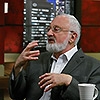 Question: In the story of the exodus from Egypt, there are several heroines who one way or another contributed to the liberation of the people. One of them is Batya, an Egyptian, the daughter of Pharaoh.
Question: In the story of the exodus from Egypt, there are several heroines who one way or another contributed to the liberation of the people. One of them is Batya, an Egyptian, the daughter of Pharaoh.
When it was announced that all boys must be killed, Moses’s mother sent him down the river. Batya knew that it was a Jewish boy, but she still felt sorry for him. What happens in a person or between people when what is forbidden, and it is clear that this will be followed by punishment, is suddenly given a thin corridor of salvation?
Answer: This is always the case. If you completely despair from the previous states and no longer see in them any breakthrough forward, no opportunity to continue your spiritual path, then a new force appears—from above. It is precisely from above, because it comes from Pharaoh.
Pharaoh is a huge egoistic desire of man to rule, to enjoy, to enrich himself.
But he also had a daughter, Batya. Batya means “daughter of the Creator” (Bet-Yod-Hey). And there is a very interesting continuation of the spiritual development of humanity through her: she rescues this baby floating on the river and nurses him.
She nurses Moses with the help of his own mother because she offered herself as a nanny. Until recent times it was customary for a outside woman to nurse a child.
Moses grew up in the royal palace, in the royal family, and received the highest education and upbringing at that time. He was called the adopted son of Pharaoh. He was sitting on Pharaoh’s lap, playing with his beard. Pharaoh’s priests predicted that this was not good and that he would inherit the throne. But his adopted grandfather loved him. And Batya, of course, was very pleased. That is how Moses grew up.
Question: From the point of view of our time, what does it mean that this boy was playing with his opponent and that he liked it?
Answer: Pharaoh is not yet an opponent. Moses is still young and grows at the expense of the Pharaoh. Our altruistic nature develops at first precisely at the expense of egoism. It plays with the egoism, the egoism cultivates it, and then it becomes the opponent of egoism.
At first, all our good, altruistic actions, which will manifest in us, are born inside a small, egoistic person. Small not by age but by his development. And they continue to develop until a certain period, until the fortieth anniversary.
40 years is the level of Bina. Therefore, until the age of 40, Moses lived and was brought up in Pharaoh’s palace. And only then did he begin to understand that he could not continue to act like this, that he had to get out of there. Hating the Egyptians for subjugating his people, he suddenly discovered his connection with the people. And not just with the people, but with the mission that the people should carry.
Jews are gathered from all the nations of the world in order to lead them to the revelation of the Creator, to the quality of bestowal, love. And Moses felt it.
From his fortieth birthday onward, we no longer hear about his foster mother Batya. And he begins to treat Pharaoh in a different way—to torment his adopted grandfather.
[280644]
From KabTV’s “News with Dr. Michael Laitman” 4/12/19
Related Material:
Passover From The Point Of View Of Modern Realities, Part 2
Passover From The Point Of View Of Modern Realities, Part 1
Moses
 Michael Laitman, On Quora: “What are some tips for boosting self esteem?“
Michael Laitman, On Quora: “What are some tips for boosting self esteem?“
Self-esteem is the starting point from which we shape ourselves, our image, in relation to our goals, our needs, the world, society and ourselves.
Therefore, shaping ourselves in relation to a goal that we envision to ourselves is key here, and self-esteem is an element that we can work with in the process.
In order to develop or boost our self-esteem, we need to clarify the goal that we want to reach, depict our image or form when we reach such a goal, and then we can measure ourselves accordingly and determine whether or not we are on route to its achievement.
We should thus view self-esteem as a means by which we can progress to the goal. We should not feel guilty about any traits that we were born with, but be at peace with them, understanding that we were given exactly the right qualities in order to fully realize ourselves.
Then, we should question what is our correct realization? What image, form and goal should we aspire to? Also, how can we advance toward it?
After clarifying these questions to ourselves, we should be able to discern what should we be content and discontent with about ourselves, and that it is all in order to advance us optimally toward our goal.
Written/edited by students of Kabbalist Dr. Michael Laitman.
Photo by Emmanuel Bior on Unsplash.
My new article on Linkedin “True Equality”
The demand for equality only increases from generation to generation. Solving this social discomfort seems to be the recipe for preventing discrimination and injustices so recurrent in our times. So what needs to happen in order to live with each other in peace?
Equality is a deceptive term because by nature we are all different. Everyone has his or her own needs and own characteristics, so the expectation of being treated the same way as someone else is quite problematic. After all, we usually do not know the other person’s needs and even if we have the intention of getting into someone else’s shoes, we will have a hard time achieving it since our own needs are always the priority for us.
If we want to avoid a general collapse, we will have to rise to a level where human connection will have a higher value than any private property or desire. Because this lofty goal is contrary to human nature, only a broad, long term social educational process can help us. A real cultural-perceptual revolution. The goal should be to upgrade the perception of reality of every individual in society. That means to change our self-centered perception, as if the world belongs only to us, and realize that in nature we are connected to others and dependent on them. When this change of perception happens, we will feel committed to care for others as we care for ourselves.
In such a reality where everyone is different and also self-centered, there can be no equality. This is what happens to us at every level, from the distribution of the government budget to the distribution of bonuses within a work team. No matter what area of our lives, we are in a constant battle because everyone thinks he or she deserves more than what is given to them now. Therefore, there is always a feeling of deprivation, and the feeling of inequality follows closely behind.
And in spite of everything, within us lies the desire for equality. Why? Because we can really enter such a state. But achieving equality requires ascending to another level of life in general. That is, through new relationships inverted from what we know now, by switching our narrow egotistical calculation of self-benefit to open relationships of consideration, connection, and reciprocity, to the level of love between people. Only in relationships based on love and collaboration can there be equality, because I love the other and the other will love me, and in that we will feel equal.
It is clear that at first glance this scenario seems like a fairytale that will never come true, but the problems and struggles humanity is facing cannot be solved in any other way. We live in a reality that is becoming more and more connected, at the same time the global, limited resources are becoming depleted. We try our best to get everything for ourselves, and sooner or later we will reckon that we have no other alternative but agreeing to give up a little.
In the meantime we feel unsatisfied, unsettled, deprived, and are just waiting for the first opportunity to free ourselves from the grip of those who oppress us and consider that we have taken what we deserve. So we move from struggle to struggle, from war to war. Each time it gets worse, because the ego increasingly gets stronger, so we are destroying each other in the name of discrimination and the demand for justice and equality.
If we want to avoid a general collapse, we will have to rise to a level where human connection will have a higher value than any private property or desire. Because this lofty goal is contrary to human nature, only a broad, long term social educational process can help us. A real cultural-perceptual revolution. The goal should be to upgrade the perception of reality of every individual in society. That means to change our self-centered perception, as if the world belongs only to us, and realize that in nature we are connected to others and dependent on them. When this change of perception happens, we will feel committed to care for others as we care for ourselves.
To achieve this goal requires an immense undertaking of advocacy, a great deal of work, both in scope and duration, to penetrate all levels of society around the world, so an agreement in the general public can be reached that fosters ideas like connection and reciprocity as a priority. This agreement will lead to changes in society, government and leadership, and also will gradually create a new attitude within society regarding equality.
As we strive to treat one another with love, we will begin to feel that we are all one soul, like organs in a single body. And just as in my body I sense the different organs, so will I feel each and every person around me. Such a state will give us the real perception of equality, one that can only be achieved through connection, through the commitment of being one for all and all for one.
[280921]